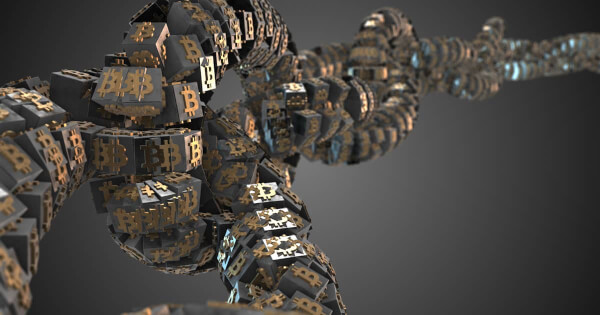What Would it Take For a Genuine Crypto Revolution to Occur
Blockchain.News Official Team Mar 15, 2021 12:00
Whether you are a fan of cryptocurrencies and digital assets or not, at the very least you can agree that we are on the cusp of what appears to be a blockchain revolution. Cryptocurrencies are undoubtedly the most high profile of the blockchain-based technologies out there, and the ones that stand to do both the most harm and good, and so are deserving of the most attention.

Whether you are a fan of cryptocurrencies and digital assets or not, at the very least you can agree that we are on the cusp of what appears to be a blockchain revolution. Cryptocurrencies are undoubtedly the most high profile of the blockchain-based technologies out there, and the ones that stand to do both the most harm and good, and so are deserving of the most attention. The renewed retail, business, and institutional interest in cryptocurrencies seem like they may be harbingers of something monumental, but what will it take for a genuine crypto revolution to actually take place? 
More Reliable Security
One of the biggest limiting factors when it comes to widespread crypto adoption and use is exchange security. A number of high-profile breaches over the last few years, where thieves have absconded with up to $150 million in coins at a time, makes it hard for investors to trust. What’s more, these losses are not insured like cash savings and investments like equities and bonds. What’s lost is lost forever.
Exchanges can be hacked via phishing, malware, and traditional hacking methods and while there are a number of things that can be done to mitigate your risks, including making use of two-factor authentication when entering in login information, utilizing hardware wallets, and always using a VPN while trading, the attractiveness of cryptocurrencies to cybercriminals remains even after you have taken the necessary precautions. The untraceability, lack of intermediaries, and decentralized nature of cryptocurrencies--all the features that make them revolutionary--are also the most useful for committing and laundering the proceeds of crime.
Regulation
Another barrier to widespread adoption and legitimacy is the lack of regulation that currently defines crypto markets and trading. This is the primary dilemma of cryptocurrencies because their power lies in the fact that they are, in important ways, free from state authority. States can ban the use and trading of digital currencies--which Algeria, Vietnam, Saudi Arabia, Qatar, Bolivia, Bangladesh, and several others have already done--but the blockchain is essentially immune to government interference.
The downside of being able to possess an asset that doesn’t require intermediaries, nor for the owner to identify him or herself and is not confiscable, is that it is essentially anarchy out there. This is not conducive to a stable market, which is what an asset, and most certainly a method of exchange, needs to function widely and properly.
Improved Liquidity
Liquidity is fundamental to any market and as it stands, most cryptocurrencies suffer from, at best, erratic liquidity. The fact that it can take hours to days to place trades in many coins is a major demerit against crypto assets. Bitcoin is by far the most consistently liquid of all of the coins, and the increased acceptance of Bitcoin as a payment method by brick and mortar stores, online, and increased institutional interest all bode well for its sustained liquidity.
One of the primary changes that will help increase crypto liquidity is an increase in secure, reliable exchanges where coins can be traded. Many people hold their crypto assets outside of exchanges, which makes sense when you consider the number of hacks and thefts in the last couple of years. More liquidity market makers providing things like better reporting, more stable and reliable data feeds, more competitive spreads and faster trade execution will also go a long way.
Crackdown on Illegal Uses
For all of the utopian talk around cryptocurrencies like Bitcoin, cryptocurrencies continue to enable crime and exploitation. When criminals hack private and public companies and institutions and make off with huge troves of data that they then put up for sale, the preferred method of payment is usually crypto. When drugs, stolen artwork and jewels, and even human beings are sold and trafficked online, again, the preferred method of payment in 2021 tends to be cryptocurrency.
It will be hard for governments to strike a balance between preserving crypto’s positive revolutionary aspects that draw investors and cracking down on those people using digital assets to make the world a worse place. Both criminals and utopianistic investors like the idea of an intermediaryless world where people can interact and trade with one another without having to pay someone to facilitate the transaction and free from the watchful eye of the state. It is unclear how regulatory agencies and governments will be able to separate the nefarious from the legitimate uses of cryptocurrencies without placing an outright ban on trading (as has been done in the aforementioned countries).
Conclusion
Crypto enthusiasts both new and old school believe that human society and its financial systems are already in a tentative new stage of development. Whether cryptocurrencies become fully realized, liberational mediums of exchange many hope for depends on several changes that have yet to take place and answers to problems that appear to have answers that are, as of yet, unclear.
Image source: Shutterstock.jpg)
